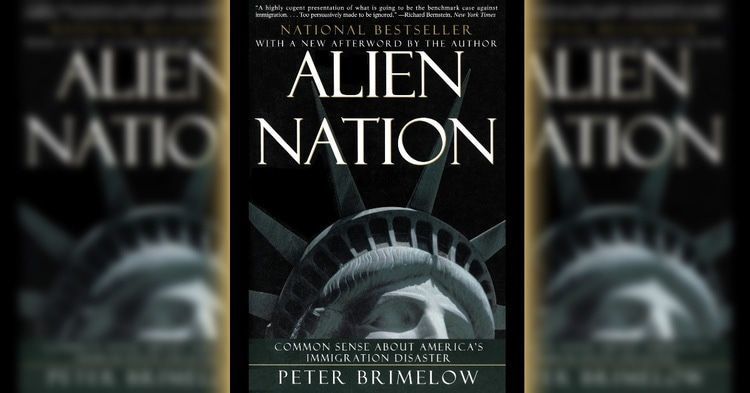


05/01/1995
By George Ramos
Los Angeles Times,May 1, 1995
In the post-Proposition 187 climate in Southern California, author Peter Brimelow’s new book adds more fuel to the anti-immigrant firestorm. In "Alien Nation," Brimelow argues that the United States has lost control of its borders and needs a fresh approach to be a great nation once again.
After all, he says and writes, "Immigration is a luxury, not a necessity."
He has an assortment of solutions to the dilemma that he says is threatening the nation. High on his list is his demand that the U.S. government abolish its longstanding policy of family unification-allowing newly naturalized U.S. citizens and legal residents to petition to have family members join them in this country. Instead, he favors granting entry to professionals with marketable skills. He says taking in so many unskilled laborers is unhealthy.
He also thinks temporarily halting legal immigration to this country for three to five years might have a positive impact as the nation struggles to absorb the nearly 1 million who already come here each year.
Brimelow, a naturalized U.S. citizen from Great Britain, dissected the problem neatly when he blew through town last week to promote his book. He cited numerous statistics but few personal stories from immigrants to buttress his contentions or refute them. He didn’t spend much time talking to them; he said he didn’t need to. I’m an immigrant, is his premise; I talked to me.
If he had, he would have learned that the solution to the immigration quandary isn’t as simple as he suggests. Two events that occurred after he left town on Wednesday would have given him a whole new perspective on his so-called alien nation.
A crowd of mostly native-born Chicanos-Mexican Americans, if you will-turned out Thursday night for the West Coast premiere of "My Family," the story of how a Mexican familia came to the United States and settled in East L.A.
It’s a story that resonated with the audience, many of whom said that they saw members of their own family depicted in the characters played by such mainstream Latino actors as Edward James Olmos, Jimmy Smits, Esai Morales, Elpidia Carrillo and Maria Canals.
Such stories are nice, says Brimelow of such personal accounts, but the United States has had its fill of immigrants who come illegally, as the family patriarch in the movie did back in the 1920s.
He maintains that it’s equally wrongheaded to extend citizenship to children of illegals just because they were born here.
But for the people who saw "My Family" at the Cinerama Dome, Brimelow’s theory is as old-fashioned as the one that said the Earth is flat. In the film, the children of the family patriarch make their own marks: One joins the Navy and another becomes a nun. A third becomes a writer and a fourth goes to UCLA in pursuit of a law degree and a white wife.
Another is killed by the police, and yet another son goes to prison.
These stories, the audience members said, were Mexican in origin, yet all-American to the core.
"That’s my story," one Chicano moviegoer said over and over. "That’s my family’s story. It’s a history of giving to this country, of going to war for this country, of being American and yet speaking Spanish."
Brimelow thinks the many Latinos' insistence on speaking mostly Spanish threatens the U.S. social fabric, but to the Establishment Chicanos at the premiere, he’s missing the point.
"We all speak English; no one is going to deny the importance of English," one Chicana said. "Speaking Spanish to me is just as American as rooting for the Dodgers."
And then Sunday, at the Cinco de Mayo celebration dubbed L.A. Fiesta Broadway, Brimelow’s contention that the U.S. is being overwhelmed by illegals looked true enough. He frets over the many young, unskilled laborers and what they will do to the U.S. work force. And there were a lot of them Downtown, swaying to the music of salsa queen Celia Cruz or the gyrations of Garibaldi, a high-stepping merengue group.
Brimelow would have us believe the new arrivals are more of a burden than a help, and that they have little purchasing power compared to a native-born worker who Brimelow thinks is more likely to buy a house, a car-the American investments.
But some of the biggest crowds along Broadway were made up of families. They waited at booths where Sears passed out credit applications by the hundreds under a banner that read "Todo para ti" (Everything for you). AT&T’s booths had similar long lines of people inquiring about long-distance services.
Brimelow wants some of these brown people deported, and those who are here legally to be the last such immigrants for years to come.
But when corporate America sets up shop on Broadway, it apparently sees nothing in them but good old American green.